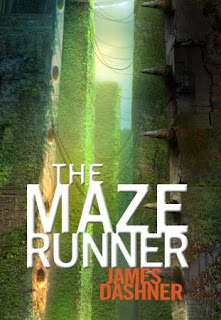
Thursday
The Last Lecture by Randy Pausch

Tuesday
Three Books About Writing
There's probably some truth to the idea that books about writing are a waste of time because whenever you're reading a book about writing, you're not writing something. It's kind of like how for every book about management you own, you're probably 5% shittier at management. Because if you knew what you were doing, how many books would you have to read about it?
And I read these. So hopefully I've been successful at convincing you I know dick about writing, which is my main qualification for blogging.
*
*

Elmore Leonard's 10 Rules of Writing
This book takes about three minutes to read through. Which is kind of what makes it work.
The book itself is kind of a handsome devil with a leather outer binding on the spine and thick, cardstock pages with illustrations on the inside. The back cover even suggests that it makes a great gift for readers and writers, which might b true. It might make a better gift than it does a read.
That said, the advice is all good stuff. Basic, but good. You certainly get a lot of stuff like, "Don't talk about the weather. Unless you're Barry Lopez." Leonard has a good set of rules, and without killing the point, mentions that the rules will be broken, citing specific respectable authors who break one or more of the rules with the regularity of a vegetarian drinking a 2-liter of Metamucil.
His main rule, and probably the best, is "If it sounds like writing, I rewrite it."
Good gift. If you're curious about the rules, you could stand and read the whole thing in no time and then decide on it.
*
*
The Secret Miracle, ed. Daniel Alarcon
This book has an interesting take on the classic How-to writing book.
There are a couple dozen authors interviewed, everyone from Stephen King and Amy Tan to Chris Abani.
The format of the book is a displayed question, followed by the short answers of several of the authors. So you might see, Do you listen to music while you write? followed by answers from a variety of different authors.
I can't say I read this one word-for-word, and I don't think it's meant to be used that way. If you read through, you can get a good profile of an author you like, and you also see the huge variety of answers provided, the overall message being, "Everyone does this differently, so you probably better just do what works for you." Not too helpful as advice goes, but a nice kickstarter for a writer who's feeling stuck or unsure of their process.
*
*
What I Talk About When I Talk About Running by Haruki Murakami
Of the three, this one is the least oriented towards writing. Murakami, a great novelist, spends a lot more time talking about his life as a distance runner, drawing some parallels between writing and running.
This feels like a niche book to me. It might be of interest to aging athletes who are wondering how getting older changes a person's relationship with his body, and it is likely of interest to runners who write. But other than those two and Murakami super-fans, I don't know how appealing it would be.
BUT, if you belong to one of those groups, give it a shot. It's a fast read, and in a lot of ways it really leans well towards Murakami's reflective, meditative style.
Oh, and anyone who translates the works of Raymond Carver and then asks Carver's widow about borrowing the title is okay by me.
Wednesday
The Maze Runner by James Dashner

The story is pretty simple, a bunch of kids trapped in a giant maze for no apparent reason. It reads like a sort of cross between Lord of the Flies, Battle Royale, and the Hunger Games.
About Me

- H.S.
- Cover My Ass Time: This is all happening in a magical, fictional universe. Any resemblance to anything ever is strictly the product of a weak imagination, for which I apologize.


